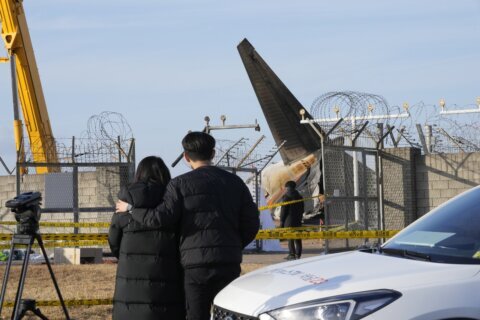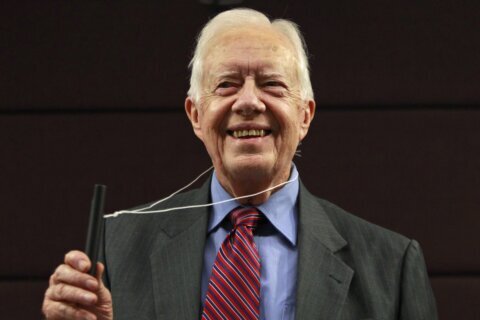MANILA, Philippines (AP) — Combat exercises between the United States and the Philippines involving thousands of forces each year will not be affected by America’s focus on the wars in Ukraine and the Middle East, a U.S. general said Thursday.
The Biden administration has been strengthening an arc of military alliances in the Indo-Pacific region to build deterrence and to better counter China, including in any future confrontation over Taiwan and the disputed South China Sea.
But there have been concerns that the war in Ukraine and the Israel-Hamas conflict could hamper America’s pivot to Asia and the Pacific and divert military resources intended for the region.
“Certainly, it does not affect our presence,” Maj. Gen. Marcus Evans, commanding general of the U.S. Army’s 25th Infantry Division, told The Associated Press in an interview late Thursday when asked to comment on those concerns.
“If anything, it drives an increased sense of urgency to focus on these partnerships that we’ve developed decades ago and it’s our responsibility to continue to build on these unique training opportunities.,” said Evans, who has 12,000 soldiers under his command.
Evans, who is based in Hawaii, was in Manila for talks with his Philippine army counterparts ahead of largescale combat maneuvers between the U.S. and Philippine forces.
The annual drills include the Salaknib, which are army-to-army drills first held in the country in 2016, and the larger Balikatan, a Tagalog term for shoulder-to-shoulder, which was joined by more than 17,600 military personnel in April of 2023 in their largest combat exercises in decades.
Some of last year’s Balikatan exercises were held in Philippine coastal areas across the sea from the Taiwan Strait and the South China Sea. The expanded combat exercises involving U.S. forces have been criticized by China as a threat to regional unity and peace.
Evans said the scope of this year’s Salaknib and Balikatan exercises, which would include jungle training, “remains consistent with last year.” After the exercises, a contingent from a Hawaii-based combat readiness center would take part for the first time in a “very focused evaluation exercise” to assess the ability of the allied forces to operate together, he said.
The unfolding conflicts in Ukraine and the Middle East, he said, were a source of important lessons for the allied troops in the Philippines.
“The two conflicts … are continuing to provide us lessons to be learned and to be implemented and to be trained on here in the Philippines,” Evans said.
As the conflicts unfold, “We are actively learning, understanding what are some of the challenges that are being experienced,” he said without elaborating.
“We talked about this today, our ability to be small and undetectable, our ability to be able to move quickly in this place, our ability to project forward and see and sense are all things that we need to continue to train on,” he said.
“Collectively, we have a responsibility to make ourselves more ready today than we were yesterday,” he said.
Last year, Washington repeatedly expressed its support to the Philippines amid a series of increasingly tense territorial faceoffs between Chinese and Philippine ships, including incidents where the Chinese coast guard and suspected militia vessels resorted to water cannons and dangerous blocking maneuvers that caused minor collisions in the disputed South China Sea.
Washington last year renewed a warning that it would defend the Philippines, its oldest treaty ally in Asia, if Filipino forces, ships and aircraft come under an armed attack, including in the disputed waters.
___
Associated Press journalist Aaron Favila contributed to this report.
Copyright © 2025 The Associated Press. All rights reserved. This material may not be published, broadcast, written or redistributed.







